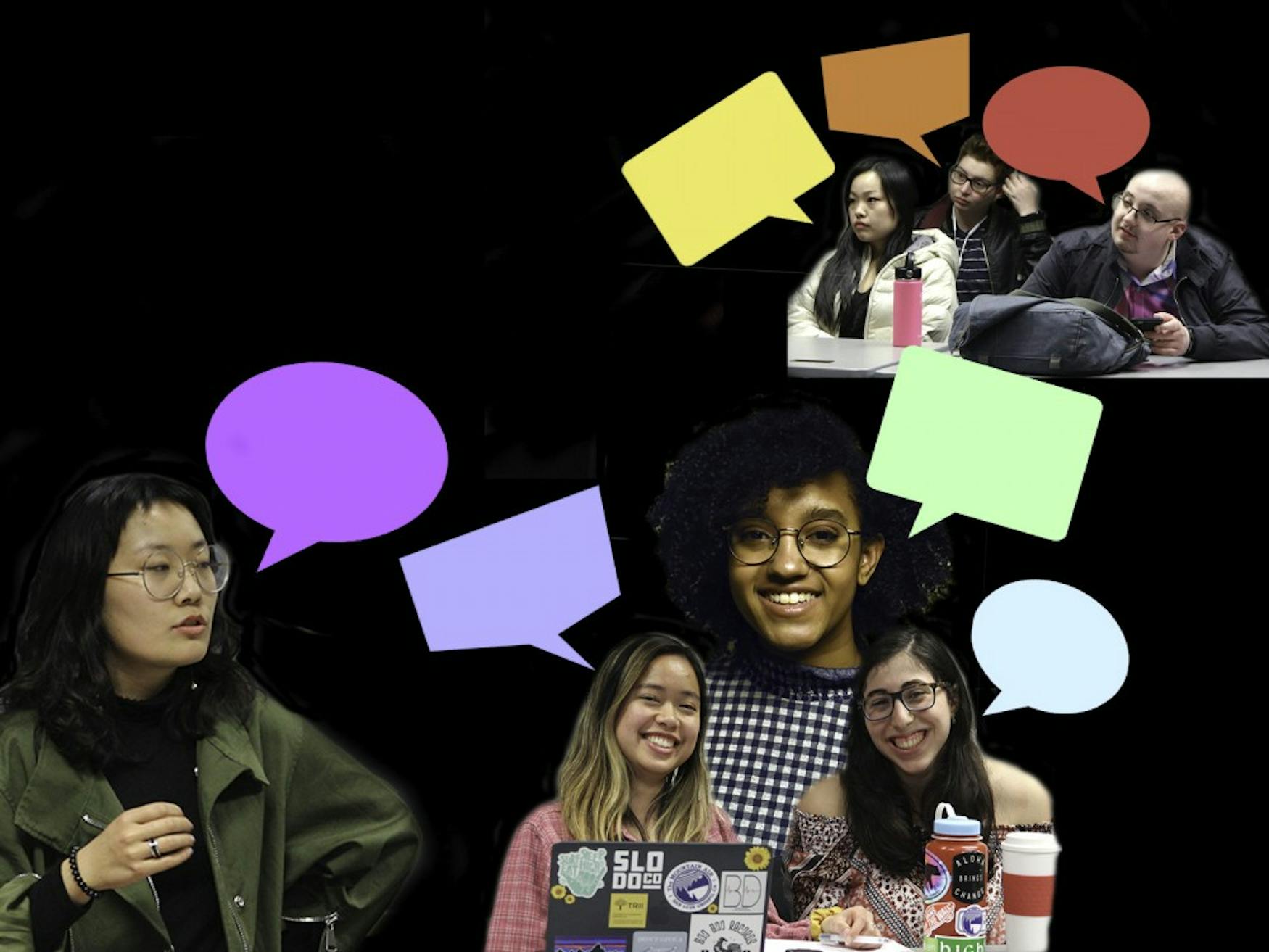Diversity in debate
Brandeis' debate team aims to challenge the industry standard
The Brandeis Academic Debate and Speech Society embodies its acronym, BADASS, giving club members the power and confidence to defend their own beliefs and question those of others. According to its website, BADASS is “dedicated to providing the students of Brandeis University a place to hone their speaking skills and explore new perspectives, attitudes, and ideas.” BADASS’ mission statement has, in recent years, been the catalyst for the club’s initiative to recruit members from diverse backgrounds.
BADASS member Noam Shurin ’19 had the distinction of making history as the first African American woman to place in the prestigious World Universities Debating Championship in Cape Town, South Africa last year. Shurin and her partner Ravi Simon ’19 have proven to be essential members of the BADASS team. Shurin says that her experience on the team has been fantastic: “Every single week we go to different schools and meet really awesome people, who I’ve become lifelong friends with.” Club president Winnie Qin ’19, former Vice President Shira Rosenberg ’20 and Shurin shared with the Justice areas in which debate is becoming more diverse as an activity and still has room to grow both at Brandeis and throughout the world.
Rosenberg mentioned that debate is improving, as historically it has been primarily a male-dominated activity. She said that many times it appears that men have better outcomes at competitions because of their low-pitched voices. “That makes them sound more trusting,” Rosenberg pointed out. Often, she said voices get faster and rise in pitch during debate. She has been described as “shrill.” However, Rosenberg and Shurin mentioned the role of “Equity Officers” who address concerns about prejudice at competitions and have the power to remove people from the competitions who act inappropriately. This, Rosenberg and Shurin say, is helping the competition’s culture.
Despite the strides made to increase the number of women involved, Qin expressed that the difficulties that international students — especially those who speak English as a second language — face in debate prompted her to run for president to make BADASS more inclusive. She said, “This activity is not ESL [English as a Second Language] friendly at all. When I was first on the team, at the very beginning there were a fairly good amount of international students, but then when time goes by, they all just quit.” Qin attributed this to the fact that there are not a lot of achieving international students to emulate.
Despite some of the areas where debate is still improving, Rosenberg spoke about how mentors on the team have helped her overcome challenges in this type of competitive environment. She elaborated that she persevered because there were influential women on the team who helped her to cope with the stress that accompanies debate. When she was vice president of BADASS, Rosenberg helped to recruit and retain marginalized students. “One of my jobs very specifically was to help with recruitment and retention, of non- ‘white men,’ because we’ve had no problem recruiting or retaining them. Not that they’re not valuable parts of the team, they just will be there,” Rosenberg explained. She said that Brandeis has overcome the perception that the activity is dominated by white men, with leadership positions going to more women and people of color.
Looking ahead, Shurin, Rosenberg and Qin mentioned increasing the inclusivity of the team, both at Brandeis and in the greater debate world. Shurin commented that, originally, it was assumed that novices who were white men would be the best at debate, yet now the team is becoming more diverse. She said, “We were second place in the country and now we are fifth place in the country and there is massive amounts of more representation. Does that mean that we are becoming less competitive? No. Does that mean that competition and inclusivity necessarily trade off? Probably not. But these are the questions that the team is moving towards and trying to ask itself.”
Shurin also mentioned that the team and executive board are finding a balance between the fun and competitive aspects of the activity and find it important for students’ mental health to be “encouraging people to practice but also encouraging hangouts and debriefs and check-ins.”
Rosenberg concluded that even with the improvements that need to be made to the activity, this is her third year on the team, and she has been enjoying her experience. She said that the question for the future is, “How can we be better?”



Please note All comments are eligible for publication in The Justice.